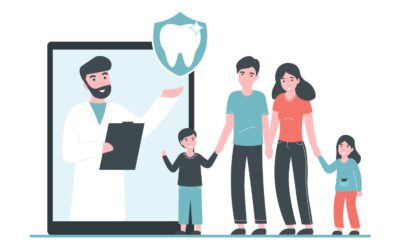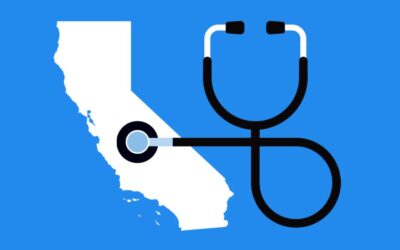
The Future of Healthcare: Striking a Balance for a Healthier Tomorrow
The landscape of healthcare is continuously evolving, and as we look toward the future, two key directions stand out. One path involves the development of innovative drugs and treatments to combat ailments, while the other encourages individuals to take greater control of their own health. In this post, we’ll explore both directions and highlight the importance of striking a balance between medical advancements and personal responsibility for a healthier future.
The digital transformation within healthcare is revolutionizing patient care through groundbreaking technological innovations. Telemedicine has transcended geographic barriers, offering consultations and follow-ups via video calls, which not only saves time but also reduces the strain on facility-based services. Wearable health monitors are empowering patients with real-time data about their health, enabling proactive management of chronic conditions and lifestyle choices. The most disruptive force, however, is AI diagnostics. With the capacity to analyze vast datasets, AI is enhancing diagnostic accuracy, predicting patient outcomes, and even assisting in the development of customized medication – all at an unprecedented pace.
Healthcare Accessibility
Advances in technology hold the promise of improved healthcare access, yet their benefits must permeate all layers of society to fulfill this promise. To bridge the healthcare divide, policy changes that incentivize the adoption of telehealth can play a pivotal role, especially in underserved areas. Insurance reforms are also critical, as they can dictate the affordability and availability of new technologies to the masses. Meanwhile, community health initiatives are vital in spreading awareness and facilitating the local adoption of these innovations, ensuring that every individual, irrespective of their socioeconomic status, can access the care they need.
Personalized Medicine
The future of healthcare is not one-size-fits-all; it’s personalized. Genomics is at the forefront of this revolution, tailoring treatment to the individual’s genetic makeup. Personalized medicine’s potential to increase treatment efficacy and reduce side effects is monumental. It promises a healthcare system that is predictive, preventive, and precise. As we decode more about the human genome and integrate it with electronic health records and AI algorithms, the dream of truly personalized care is becoming a reality, heralding a new era where treatments are as unique as the patients themselves.
In this brave new world of healthcare, the intersection of technological innovation, accessibility, and personalized medicine is where we’ll witness the most significant leaps forward in how we understand, prevent, and treat illness. It’s an interconnected ecosystem where each advancement propels the other, ultimately converging on a future where healthcare is more effective, efficient, and equitable for all.

Reinforcing the Healthcare System: Public Health Strategies, Policy Reforms, and the Integration of AI for Sustainability
Public Health and Pandemic Preparedness
The COVID-19 pandemic was a global wake-up call that underscored the importance of robust public health infrastructures. The lessons learned are numerous, but among the most critical is the need for agile and scalable response mechanisms to emerging health threats. Public health strategies are now being reimagined with a focus on real-time surveillance, rapid deployment of resources, and cross-border collaboration. Investment in research and development for vaccines and treatments has become a priority, along with the establishment of a global health alert system to ensure that the world is better prepared for the next pandemic.
Healthcare Policy and Reform
In the wake of the pandemic, healthcare policy and reform have taken center stage. There’s a growing consensus that healthcare delivery must evolve to be more resilient and inclusive. Current policies are being scrutinized to identify gaps in care and opportunities for improvement. Potential reforms are being debated, ranging from the expansion of insurance coverage to the implementation of value-based care models that reward outcomes rather than services. These reforms aim to create a system that is both patient-centric and cost-effective, ensuring that quality care is a fundamental right, not a privilege.
The Role of AI and Machine Learning
As we venture into the future, AI and machine learning are becoming indispensable tools in the healthcare arsenal, extending well beyond diagnostics. These technologies are streamlining treatment plan optimization, enabling healthcare providers to tailor interventions to individual patient needs. Furthermore, AI is transforming administrative tasks by automating processes, predicting patient admission rates, and managing operational flows, thereby increasing the efficiency of healthcare delivery and allowing providers to focus more on patient care.
Sustainable Healthcare Practices
Sustainability is becoming a critical benchmark for healthcare facilities, reflecting a broader societal push towards environmental responsibility. Reducing waste, conserving energy, and minimizing the carbon footprint of healthcare operations are no longer optional – they are imperative. Innovative practices, such as recycling medical materials, using energy-efficient devices, and harnessing renewable energy sources, are being adopted to create green healthcare environments. These sustainable practices are not just good for the planet; they can also reduce costs and improve public health outcomes by fostering a healthier environment.
In integrating these forward-looking strategies, the healthcare system is poised to become more proactive, personalized, and preventive. By leveraging the synergy between public health preparedness, policy reform, AI’s analytical power, and sustainable practices, the stage is set for a healthcare evolution that promises to deliver care that is not only high quality and accessible but also resilient and responsive to the needs of both people and the planet.

Charting the Course to Holistic Health: Integrating Mental Health and Empowering Stakeholders in a Cost-Sensitive Environment
Mental Health Integration
As society sheds the stigma once associated with mental health, there is a growing recognition of its importance to overall well-being. Healthcare services are adapting by integrating mental health care into primary health settings, offering a more holistic approach to patient care. This integration is manifesting in collaborative care models where primary care providers, mental health specialists, and patients work together to address mental health needs as part of the general health regimen. By treating the mind and body as interconnected rather than separate entities, healthcare providers can deliver comprehensive care that addresses all aspects of a patient’s health.
Economic Impact of Healthcare
The economic landscape of healthcare is an intricate web that ties individual finances to national budgets. As healthcare costs continue to rise, they exert substantial pressure on personal finances, often becoming a leading cause of financial strain for families. On a larger scale, these costs affect national economies, influencing everything from fiscal policy to labor markets. The future of healthcare spending is leaning towards value-based care, which emphasizes quality and outcomes rather than volume of services, aiming to curb the upward trajectory of healthcare costs while enhancing the value delivered to patients.
Education and Training
In response to the rapidly evolving healthcare environment, education and training for healthcare professionals are undergoing a significant transformation. New educational requirements emphasize not just medical knowledge, but also competencies in digital literacy, data management, and personalized patient care. Training methods are keeping pace with innovation, incorporating simulation, online learning platforms, and continuing education programs to equip healthcare professionals with the skills needed to navigate the digital health landscape. These advancements in medical education ensure that healthcare providers remain competent in the face of technological advancements and changing patient needs.
Patient Empowerment and Engagement
Empowerment and engagement are the cornerstones of modern patient care. Digital tools, such as patient portals, health apps, and online resources, along with greater transparency in health information, have enabled patients to take a more active role in managing their health. This empowerment fosters a partnership model of care where patients and healthcare providers collaborate closely. The result is more informed decision-making, enhanced management of chronic conditions, and overall better health outcomes. Patient engagement is not just a matter of convenience; it is becoming an essential component of effective healthcare delivery.
As we look to the future, the integration of mental health care, the management of healthcare costs, the evolution of professional education, and the empowerment of patients are not just trends; they are imperatives that will define the quality and sustainability of healthcare systems worldwide. Embracing these imperatives is essential for developing a healthcare system that is both compassionate and cost-effective, ensuring that every individual has access to the care they need for both their mental and physical health.

The Future of Healthcare in the Digital Age: Big Data, Global Initiatives, and Ethical Dynamics
The Intersection of Big Data and Healthcare
In the era of information, big data analytics stands as a pillar of innovation in healthcare. By harnessing vast amounts of health data, from patient records to genomic sequences, big data is refining patient outcomes through more precise and predictive medicine. Hospitals and clinics are leveraging this data to streamline operations, enhancing efficiency from patient admissions to resource allocation. Research has been invigorated by big data, enabling the discovery of new treatment pathways and the acceleration of clinical trials. The predictive power of big data analytics also holds the potential to foresee epidemics, improve public health surveillance, and personalize patient care plans.
Global Health Initiatives
The landscape of global health is increasingly defined by international cooperation and initiatives. Through collective efforts like the World Health Organization’s campaigns and various non-profit organizations, strides have been made in combating infectious diseases and improving healthcare equity. These global health initiatives are instrumental in setting up frameworks for pandemic preparedness, establishing worldwide immunization programs, and promoting universal healthcare coverage. The cross-border sharing of resources, knowledge, and technology is paving the way for a more unified approach to healthcare challenges, with the ultimate goal of disease eradication and improved health for all populations.
Healthcare Industry’s Shift to Digital
The shift from traditional healthcare delivery to digital platforms has been accelerated by necessity, innovation, and patient demand. Telehealth services have proliferated, breaking down barriers to access and providing care to remote or underserved populations. Digital health records have facilitated more coordinated care and improved the patient experience. However, this transition comes with challenges, including the digital divide that may leave behind those without access to technology, and concerns about the security and privacy of electronic health data. Despite these hurdles, the benefits—increased accessibility, improved patient engagement, and the potential for cost savings—are driving the industry inexorably towards a more digital future.
Ethical Considerations
With these advancements come ethical considerations that must be navigated with care. The proliferation of health data raises questions about privacy, consent, and data ownership. Ethical use of AI in medicine requires vigilance to prevent biases in algorithmic decision-making that could lead to disparities in patient care. Moreover, there is an imperative to ensure that the benefits of digital healthcare and big data analytics are equitably distributed, avoiding a widening of existing healthcare disparities. Addressing these ethical concerns is critical to maintaining trust in the healthcare system and ensuring that the digital revolution in healthcare advances human well-being without compromising individual rights or social justice.
In the confluence of these transformative forces—big data analytics, global health initiatives, the digital shift, and ethical considerations—a new vision for healthcare is emerging. It’s a vision that is more interconnected, intelligent, and inclusive, promising a future where healthcare is both a global enterprise and a highly personalized service, guided by the principles of equity and ethics.
This article was written by Mark Svetlik, with the assistance of automation technology. The content has undergone thorough editing and fact-checking to ensure complete accuracy.














































